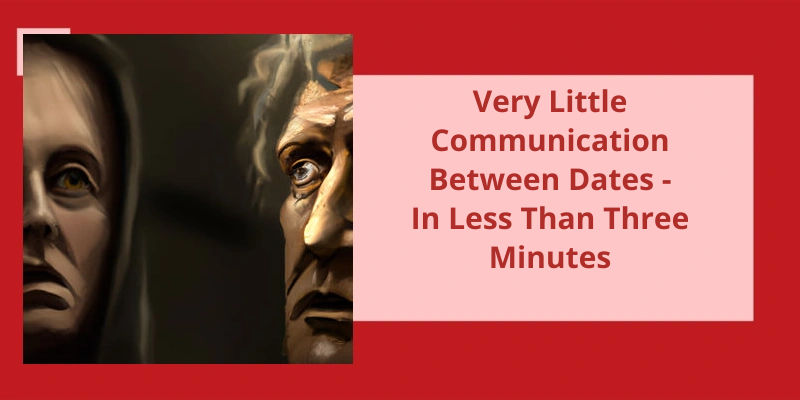Have you ever found yourself in a situation where a friend constantly talks about the same thing? It might be a hobby, a new interest, or even a personal problem that they just can't stop discussing. While it's great to have friends who’re passionate about something, it can become repetitive and tiresome when every conversation revolves around the same topic. If you're in need of a cheat sheet to handle this situation, you've come to the right place. In this ultimate cheat sheet, we will explore practical tips and strategies to navigate conversations with a friend who talks about the same thing all the time. From setting boundaries to redirecting the conversation, we will provide you with valuable insights on how to maintain a healthy and diverse friendship, while also ensuring that everyone gets a chance to share their interests and stories. So, let's dive in and discover the ultimate cheat sheet for dealing with a friend who talks about the same thing all the time.
Is Cheat Sheet Cheating?
In recent years, cheat sheets have gained popularity in various fields, including academia, professional settings, and even personal hobbies. However, the question arises: is using a cheat sheet considered cheating? The answer isn’t as straightforward as one might think.
Traditionally, cheat sheets were designed for the purpose of aiding students in cheating on tests or exams, hence the name. Students would create a compact set of notes, usually on a small piece of paper, containing key information they were expected to know. The intention was to discreetly refer to these notes during the examination, giving them an unfair advantage over their peers.
It depends on the specific circumstances. In fact, many educational institutions and workplaces provide their own cheat sheets as part of the learning or training materials.
It goes against the principles of fairness and integrity that are expected in academic and professional environments.
The History and Evolution of Cheat Sheets
A cheat sheet is a concise summary or reference guide that provides quick access to information on a particular topic. Cheat sheets have been used throughout history in various forms, but their popularity has grown significantly with the advent of digital technology.
In the early days, cheat sheets were often handwritten notes or small cards that helped people remember key points or formulas. These were commonly used by students preparing for exams or professionals in technical fields.
With the rise of computers and the internet, cheat sheets started to take on a digital form. Online communities began creating and sharing cheat sheets in various formats, such as PDFs or web pages. These digital cheat sheets became valuable resources for programmers, designers, and other professionals seeking quick and easy access to important information.
Today, cheat sheets are abundantly available on the internet and cover a wide range of topics. They’ve evolved beyond simple reference guides and now often include interactive elements, visuals, and hyperlinks. Cheat sheets have become a popular way for people to quickly grasp and remember complex concepts or procedures.
The history and evolution of cheat sheets reflect the increasing demand for condensed, accessible information in our fast-paced world. Whether you’re a student, professional, or just an information enthusiast, cheat sheets can be a helpful tool in organizing and retaining knowledge.
Having cheat sheets during exams allows students to have a quick reference for equations and facts, enabling them to focus more on understanding the material rather than memorization. Additionally, cheat sheets can be particularly beneficial in challenging exams where having helpful tips can make a significant difference in the student’s performance.
Why Do Professors Allow Cheat Sheets?
Some professors allow cheat sheets or help sheets during exams because it actually promotes a deeper level of understanding among students. These cheat sheets serve as a tool for students to organize and summarize important information. By condensing the material onto a cheat sheet, students are forced to review and prioritize the most essential concepts, equations, or facts. This process enhances their comprehension of the subject matter.
In many professional settings, individuals aren’t expected to have every piece of information memorized. They’re given access to resources or references that help them solve problems efficiently.
It encourages students to actively engage with the material, promotes a deeper level of understanding, reduces stress, and prepares students for real-world scenarios. By focusing on comprehension rather than memorization, professors can assess students abilities more accurately, fostering a positive and effective learning environment.
Different Types of Cheat Sheets: Explore the Different Formats and Types of Cheat Sheets That Professors Allow, Such as Handwritten Notes, Textbook Excerpts, or Formula Sheets.
There are various types of cheat sheets that professors allow students to use, such as handwritten notes, textbook excerpts, or formula sheets. These cheat sheets are designed to help students quickly reference important information during exams or assignments. Handwritten notes cheat sheets allow students to condense lecture material into concise summaries. Textbook excerpt cheat sheets typically include key concepts, equations, or definitions extracted from the course material. Formula sheets contain essential formulas and equations that students may need to solve particular problems. It’s essential to understand the specific format and type of cheat sheet permitted by your professor to maximize it’s effectiveness as a study tool.
Conclusion
In conclusion, dealing with a friend who constantly talks about the same thing can be challenging, but with the ultimate cheat sheet, you’re equipped with effective strategies. Remember to practice active listening, redirect the conversation to new topics, set boundaries, and be compassionate. By implementing these techniques, you can maintain a healthy friendship while reducing frustration and boredom. Ultimately, understanding and patience are key in navigating these repetitive conversations, allowing you to maintain a strong bond with your friend while diversifying your interactions.






